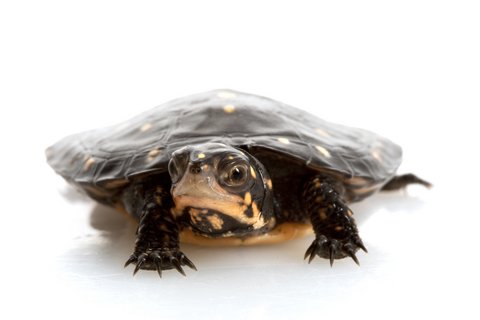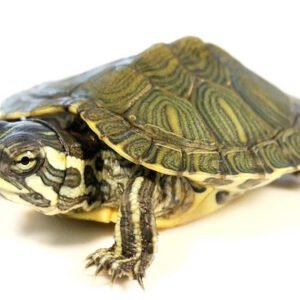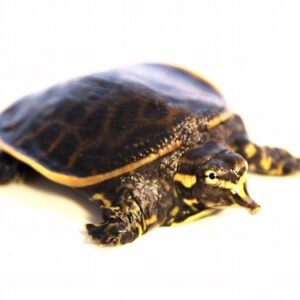Understanding Spotted Turtles: Behavior and Habitat Needs
spotted turtle for sale ,Spotted turtles (Clemmys guttata) have distinct characteristics and behaviors that make them appealing as pets, though their care requires attention to detail. One notable aspect of their nature is their social behavior; these turtles are often observed interacting with each other in the wild, indicating a degree of social structure. In captivity, keeping them in small groups can provide stimulation and enhance their overall well-being. However, careful monitoring is necessary to prevent any aggressive behaviors that may arise from territorial disputes.
Dietary requirements for spotted turtles are also important to ensure their health. They are omnivorous and thrive on a balanced diet that includes a variety of foods such as leafy greens, commercially available turtle pellets, insects, and small aquatic organisms. It is crucial to provide a well-rounded diet that replicates their natural foraging behaviors, promoting both physical health and mental engagement.
Regarding habitat needs, spotted turtles are semi-aquatic creatures that require a carefully constructed environment that mimics their natural habitats found in wetlands and shallow waters. A suitable enclosure must have ample space, with both land and aquatic areas. The water quality should be pristine, requiring regular filtration and maintenance, as spotted turtles are particularly sensitive to poor water conditions. Ideal temperatures should range from 75°F to 80°F in the basking area, while their water should remain cooler to facilitate their thermoregulation. Substrates such as sand or river rocks can provide a naturalistic environment that encourages digging and exploration.
Creating an enclosure, whether indoors or outdoors, should include specific features like basking spots where they can absorb sunlight, and hiding places such as driftwood or dense aquatic vegetation. The availability of these elements is crucial for their sense of security and contentment. By replicating their natural habitat with careful consideration of their behaviors and needs, pet owners can ensure that their spotted turtles thrive in captivity.
Health and Maintenance of Your Spotted Turtle
Maintaining the health of your spotted turtle is crucial for ensuring a long and fulfilling life. A balanced diet is the cornerstone of their health, consisting primarily of high-quality commercial turtle pellets, fresh vegetables, and occasional protein sources, such as worms or small fish. It is essential to provide a varied diet to meet their nutritional needs and stimulate their natural foraging behavior. Leafy greens like kale, collard greens, and dandelion greens can be excellent additions to their diet. Ensure that the food is properly chopped to prevent choking.
Routine observation for common health issues is equally important. Spotted turtles may be susceptible to respiratory infections, shell rot, and parasites. Signs of respiratory distress may include gasping for air, mucus around the nostrils, or lethargy. Shell rot, characterized by soft spots and discoloration of the shell, can occur due to poor water quality or injuries. Regular checks for parasites like ticks or mites are also recommended. Maintaining proper water hygiene and a clean habitat can significantly reduce the risk of these common ailments.
Regular veterinary care tailored to reptiles is essential for optimal health. A reptile veterinarian can conduct routine health check-ups and provide vaccinations if necessary. Establish a schedule for annual veterinary visits, or sooner if you observe any signs of illness, such as lack of appetite, unusual behavioral changes, or swelling. Creating a daily care routine will further enhance their well-being. This can include maintaining water quality, ensuring adequate basking temperatures, and creating a stress-free environment by limiting loud noises or sudden changes.
Monitoring your turtle for signs of stress or illness is vital. Stress indicators can include hiding, excessive basking, or refusal to eat. Avoid overcrowding their habitat and ensure they have safe spaces where they can retreat. Preventive measures against diseases include proper sanitation, routine health assessments, and education on turtle care. By being proactive and attentive, you can significantly enhance the quality of life for your spotted turtle, promoting a happy and healthy pet experience.





